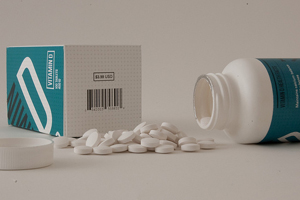Lack of Vitamin D May Lead to Premature Death
People who are deficient in vitamin D may be twice as likely to die prematurely than those who have adequate levels of this vitamin.
According to a recent study, a research team discovered, as observed over nine years, that people with less than 10 nanograms per milliliter of vitamin D present in their blood levels are twice as likely to die early than people with at least 30 nanograms/milliliter of the vitamin.
This is based on a review of 32 studies conducted on vitamin D blood levels and the death in 566,583 participants from 14 countries, including the United States, whose average age is 55. Their 25-hydroxy vitamin D levels, referring to the vitamin D present in blood, were studied.
Based on the results of the study, people should try to increase their vitamin D levels, according to the study author and UC San Diego professor Cedric Garland. Three years ago, the Institute of Medicine has recommended 20 ng/ml as the minimum level of vitamin D in the human body.
The same organization has also cited that two thirds of Americans have vitamin D that is below this level.
This is why Garland recommends that people need more than 20 ng/ml of vitamin D, based on the results of his latest study that link vitamin D deficiency to premature death. He says that IOM’s recommendation was based solely on the link between vitamin D and bone disease, and did not have the same amount of data that he used during his research.
The higher risk of premature death in Garland’s study is likely due to how vitamin D deficiency is linked to a higher risk of serious diseases, such as cancer and diabetes.
Garland added that the lack of vitamin D is due to the lack of exposure to sunlight. He said that people should get sunlight for at least 10 minutes per day. It also helps to take supplements.
It is also recommended for people to get themselves tested to find out about their vitamin D levels.
Vitamin D is critical to cancer prevention and maintaining one’s well-being. Egg yolks, salmon, and sardines can supply the body with additional vitamin D.
However, getting vitamin D from diet alone can be difficult, which is why exposure to enough sunlight is still the best way to get it.
You can learn more about vitamin D deficiency in the links below:

